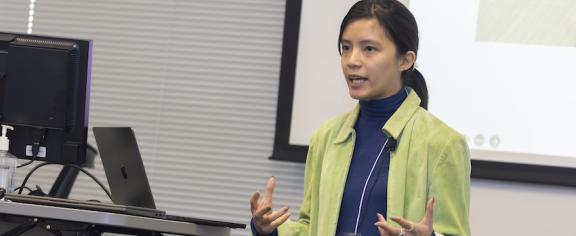2025-10-01
Three researchers from Georgia Tech's School of Interactive Computing (IC)—Cindy Lin, Lynn Dombrowski, and Shaowen Bardzell—were selected to present their paper at the highly selective Aarhus Conference in Denmark.
2025-10-08
Generative AI is accelerating the evolution of cybercrime, prompting companies to develop new tools for protecting their businesses.
2025-10-09
Georgia Tech expert Zachary Handlos joins a growing conversation about whether the Saffir-Simpson Hurricane Wind Scale adequately reflects the full range of hurricane hazards in a changing climate.
2025-10-01
As of Oct. 1, the U.S. government has failed to reach a spending agreement in time to avoid a shutdown of the federal government.
2025-09-23
Heart failure remains one of the most challenging conditions to monitor outside the clinic.
2025-09-26
Georgia Tech researchers analyze seasonal differences of SO₂ and sulfate concentrations in the atmosphere over decades to determine the long-term impact of sustained air quality control efforts.
2025-09-24
Georgia Tech and Vanderbilt researchers have built the first lung-on-a-chip with a working immune system, a breakthrough with the potential to reshape how we study disease, move beyond animal testing, and administer lifesaving therapies.
2025-09-18
The affordable wearable measures foot pressure and could improve stroke and Parkinson’s therapy.
2025-09-11
Nexus is Georgia Tech’s next-generation supercomputer, replacing the HIVE.
2025-09-16
Scientists team up to better understand how certain types of air pollution increase the risk of developing dementia.









